Those first few weeks of school can be rough when you have students who test authority and like to talk back or argue when given a reminder or asked to do a simple task. It is even harder in the beginning because you have not had time to build a mutual relationship of respect. While you are building this relationship, you need something simple but effective to stop any back talking in its tracks (especially before it spreads to other students). Today, I want to share with you the strategy I have used the past two years in my inner city classrooms.
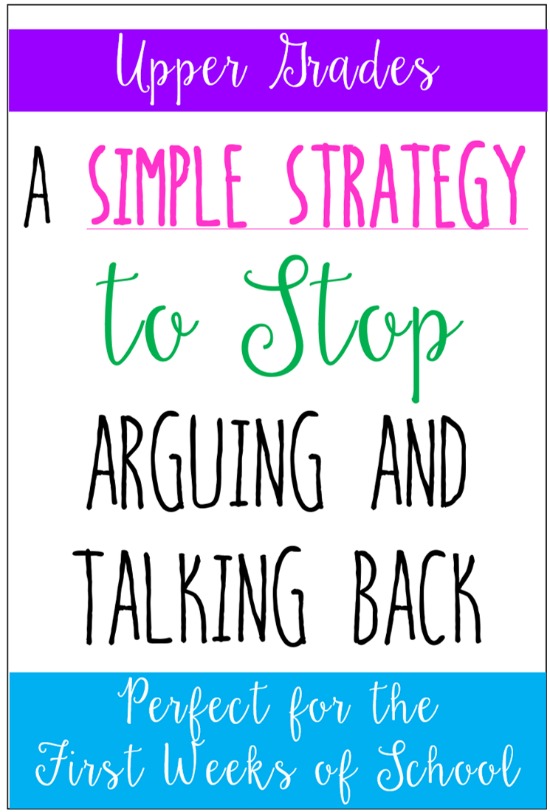
Remember this is for when you are asking the student to do a task or reminding them of a procedure they should be following. This is not for instances where a lengthy discussion needs to be had because the behavior is more serious.
Step 1: Make a list of appropriate responses for the student to use when he or she is reprimanded or reminded to do a task. I don’t advocate reprimanding students in front of others, but sometimes the smallest reminders will set a student off to back talk (For example: Remember to wait in line over there or Math Notebook on your desk, please.) Depending on whether you have a small cluster of students who back talk or just one, you could make this list whole group or one on one. Last year, I did it one on one, two years before that I did it whole group. It all varies based on your particular needs. Here are some appropriate responses that students and I have come up with in the past.
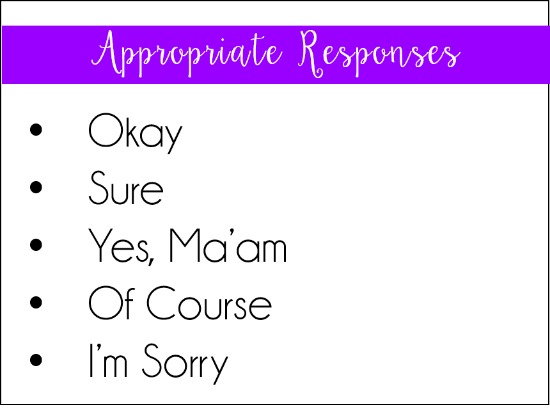
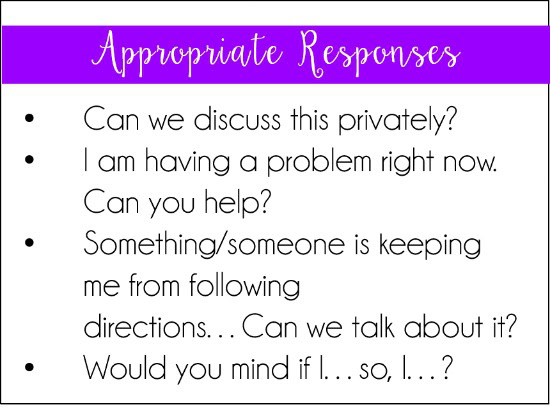
Step 2: Reinforce and remind the student(s) to use appropriate responses calmly and firmly. This is the important part. I post the appropriate response list in a visible to the class or student. When the student starts to back talk, I calmly remind him/her to use an appropriate response. The thing about the responses is that the student still has control over something. This is key. I feel like if you force some students to say one particular response, it will become a power struggle. This way, the students remains in control of their responses and keeps their dignity in front of their peers.
Step 3: Allow the student a written outlet if they feel like you need to know something else. Sometimes a student wants to tell you their side of a situation but their history of back talking or their anger can cause it to come off the wrong way. You never want to make a child feel like what they have to say is not important to you. I have given a student a notebook or a pack of post it notes. If they need to tell me something, they may write it down and leave it on the corner of their desk. This way their voice is heard, but they are not disrespecting you by saying it in a rude or angry manner.
Both times that I have used this strategy, I only had to use for 1-2 months maximum. By then I had built a relationship with the student and this strategy was no longer needed. However, it was a huge life saver during those first few weeks of school when you are trying to set the tone for the rest of the year.


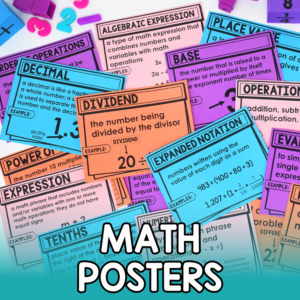
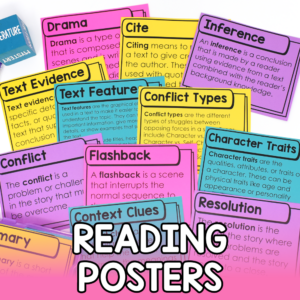




I really like the appropriate comments. Some children haven't added those type of phrases into their personal vocabulary. We could als remind parents of the type of response we expect in class in order to reinforce the strategy at home. Love the positive spin.
Thanks for sharing.
Beti
This is awesome! Thanks for sharing! Back talk isn't bad in third grade usually – not like it was in middle school! However you just know this probably could arise at any time! My to be second grader has certainly started trying it out at home!
I'm wondering… the five "appropriate responses" are all affirmative. What if the student does NOT agree? I believe that is the reason he or she is talking back, correct? I would also give five more "appropriate responses" that show dissonance, so students can learn how to disagree politely. This would give more control to the student and work as they grow up to become adults, as well. Possible responses could be… "May I think about that and get back to you later today?" or "I am not feeling comfortable about this right now. Can I try later?" I see that you put this in the category of a teacher reminding students to do something, but maybe that something doesn't work for them at this time for some reason. I can't think of any more responses right now, but I am hoping to give students more access to their feelings, instead of simply complying with my wishes. (I don't even know if I'm making any sense right now…) 😉
That is a great idea! I guess in these situations I am definitely not looking for the student to disagree with me. I am thinking of specific examples like I have in the post (Math notebook on your desk, please)were they need to learn that there is no option. And if something was truly wrong, nine times out of ten, the student won't backtalk to tell you. If it was truly a situation where a student might not be comfortable or might disagree, a more lengthy conversation would need to take place. With that being said, the written response that the student can write will take care of some of that. However, you really have to just know your students. The students that have talk backed in my experience were testing authority, which can never be tolerated. If a student is doing it for another reason, other strategies are definitely needed. Thanks for your insight!
I modified the post to add some other responses that allow for the student to be having a problem, which to me is the only reason they would need to disagree with a task or procedure. And hopefully clarified that this works best when the students are given a task or reminded to follow a procedure in place. Thanks again for your insight!
I LOVE the new response you added! They sound so responsible!! At the 7th grade level, I usually only have one or two talk back… maybe once a quarter or so. Then I ask to meet them privately during homeroom the next day so we can figure out how to start the next day on a positive note. I really love the new options you provided! I'm glad I made sense – felt like I was rambling. Enjoy this next school year!!
What about when they use an appropriate response with a disrespectful tone? I often get kids replying to me with “okay” but in a very nasty tone just to get me to leave them alone (knowing that they can’t say what they’re probably thinking).
Whatever happened to the teacher is the adult and the student is the child so they should not talk back and should obey????
I started teaching high school Culinary Arts… and I sure do get back talk from students. This will help them with work skills on how to solve issues at work. Thank you for the ideas!!
I know this is an old article, but I was wondering if you had suggestions for kindergartens just learning to write more. I think the appropriate responses is a great idea, but we’re working on positive ways for him to express himself rather than arguing/talking back.
Thanks so much for sharing this. I am facing this issue with a specific student and my usual strategies just aren’t helping. I like this and I’m going to try it today! 🙂